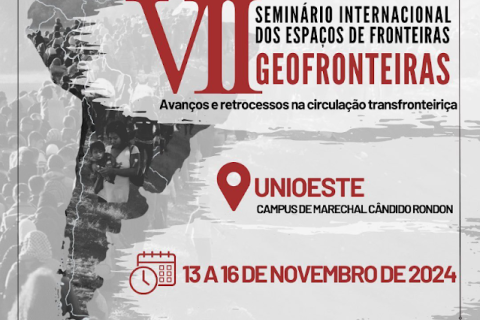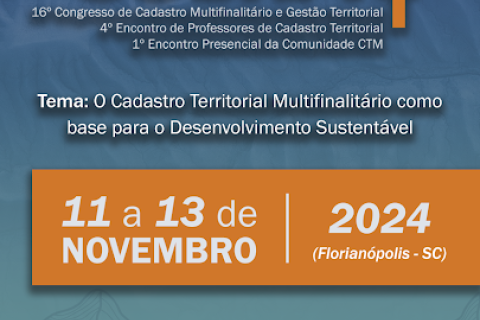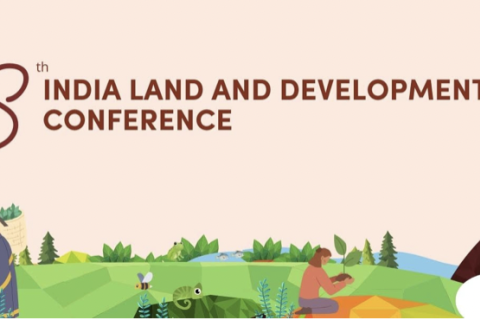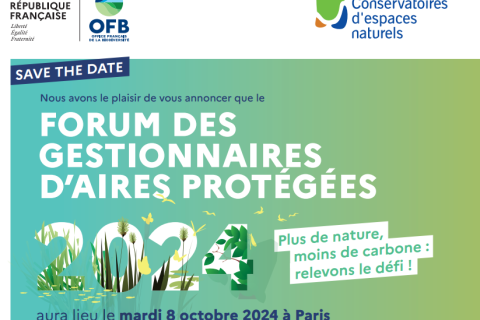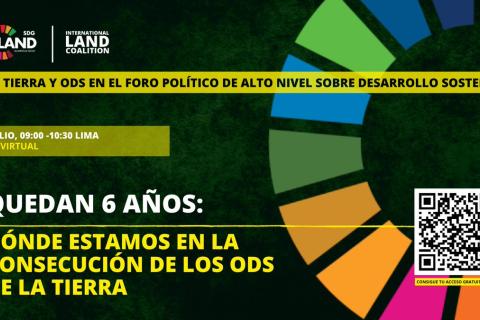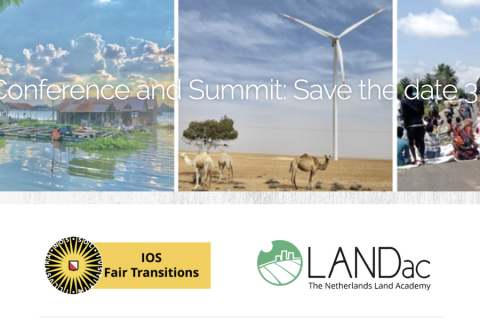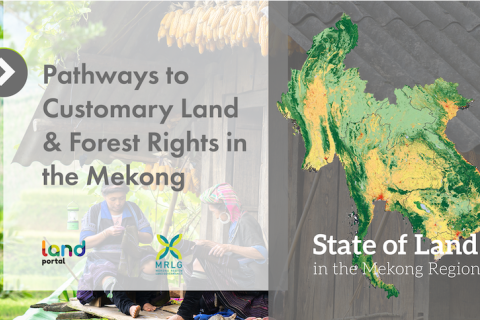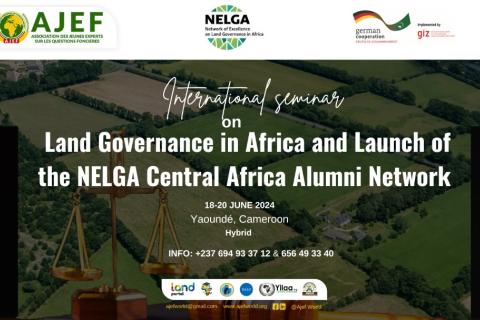Land Events
Find out what’s happening in your city, region and online using our unique land events calendar and listings below.
12 November 2024 - 15 November 2024
, Brazil
Foto: PPGGEO MCR
Evento: VII Seminário Internacional dos Espaços de Fronteiras (Geofronteiras)
Lema/Tema: "Avanços e retrocessos na circulação transfronteiriça"
Data: De 13 a 16 de novembro de 2024
Local: Marechal Cândido Rondon, Paraná - Brasil
Modalidade de participação e prazos: Envio de resumo
10 November 2024 - 12 November 2024
, Brazil
Foto: COBRAC
Evento: 16º Congresso de Cadastro Multifinalitário e Gestão Territorial, 4º Encontro de Professores de Cadastro Territorial e 1º Encontro Presencial da Comunidade CTM
Lema/Tema: "O Cadastro Territorial Multifinalitário como base para o Desenvolvimento Sustentável"
Data: De 11 a 13 de
05 November 2024 - 07 November 2024
The Eighth India Land and Development Conference, ILDC 2024 will be organised from 5-7 November 2024 at FLAME University, Pune, India.
The theme of the 8th edition of ILDC is "Land Tenure Transitions: Climatisation or Communitisation." This theme highlights the surge in global climate actions
07 October 2024
6 Rue Albert de Lapparent, 75007 Paris, France
L’édition 2024 du Forum est coorganisée par l'OFB et la fédération des conservatoires d’espaces naturels (CEN), le 8 octobre 2024 à Paris. Il portera sur le rôle des aires protégées dans la séquestration du carbone par les milieux naturels. En effet, le réseau des CEN expérimente le développement
Organizers: Agence Française de Développement
July 2024
Pagination
| M | T | W | T | F | S | S | ||
|---|---|---|---|---|---|---|---|---|
|
2
|
5
|
|||||||
|
|
||||||||
|
|
|
|
|
|
||||
|
8
|
9
|
10
|
11
|
12
|
13
|
14
|
||
|
|
|
|
|
|
|
|
||
|
15
|
17
|
18
|
19
|
20
|
21
|
|||
|
|
|
|
|
|
|
|||
|
22
|
24
|
25
|
27
|
28
|
||||
|
|
|
|
|
|
||||
|
|
||||||||
|
29
|
30
|
31
|
1
|
2
|
3
|
4
|
||
|
|
|
|
|
|
|
|
||
16 July 2024
UN EVENTO OFICIAL VIRTUAL DEL FORO POLÍTICO DE ALTO NIVEL- HLPF
SOBRE EL EVENTO
Mientras el Foro Político de Alto Nivel sobre los ODS 2024 revisa el Objetivo 1 -poner fin a la pobreza en todas sus formas- ¿hasta qué punto está el mundo bien encaminado con respecto a una de las condiciones previas
03 July 2024 to 05 July 2024
Utrecht University Utrecht, Netherlands
IoS Fair Transitions Platform & LANDac, Utrecht, the Netherlands | 3-5 July 2024
The starting point for the Conference and Summit is the recognition that ongoing transitions in the name of climate change and clean energy are deeply unfair in multiple ways. The challenges involved in making
Organizers: IOS Fair Transitions, LANDac
01 July 2024
2 July 2024
9:00-11:00 CEST | 14:00-16:00 BKK/VTE
Register now
Please join us for a thought-provoking webinar on Pathways to Customary Land & Forest Rights in the Mekong on July 2, 2024 from 9:00-11:00 CEST | 14:00-16:00 BKK/VTE.
This webinar will present findings from research conducted by
Organizers: Land Portal Foundation, Mekong Region Land Governance
17 June 2024 to 19 June 2024
Hôtel TOU'NGOU Carrefour Etoa Meki Yaounde, Cameroon
In order to build human and institutional capacity for the implementation of the African Union (AU) land agenda, the African Land Policy Centre (ALPC) has established the Network of Excellence on Land Governance in Africa (NELGA). NELGA is a partnership of leading African universities and research

